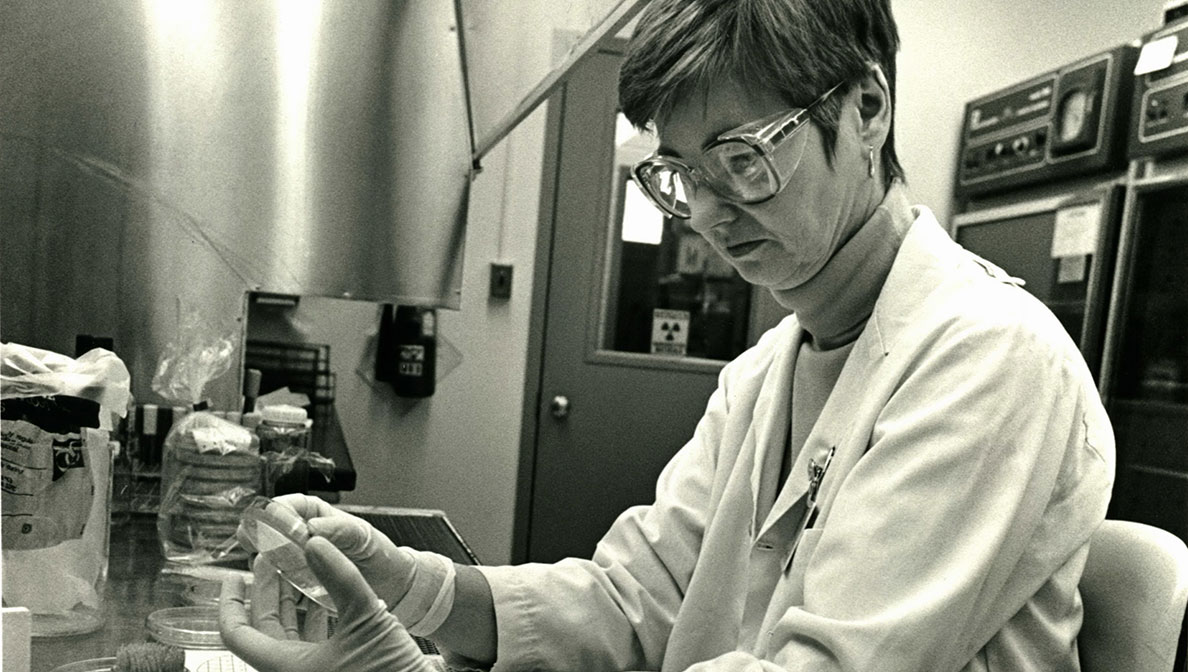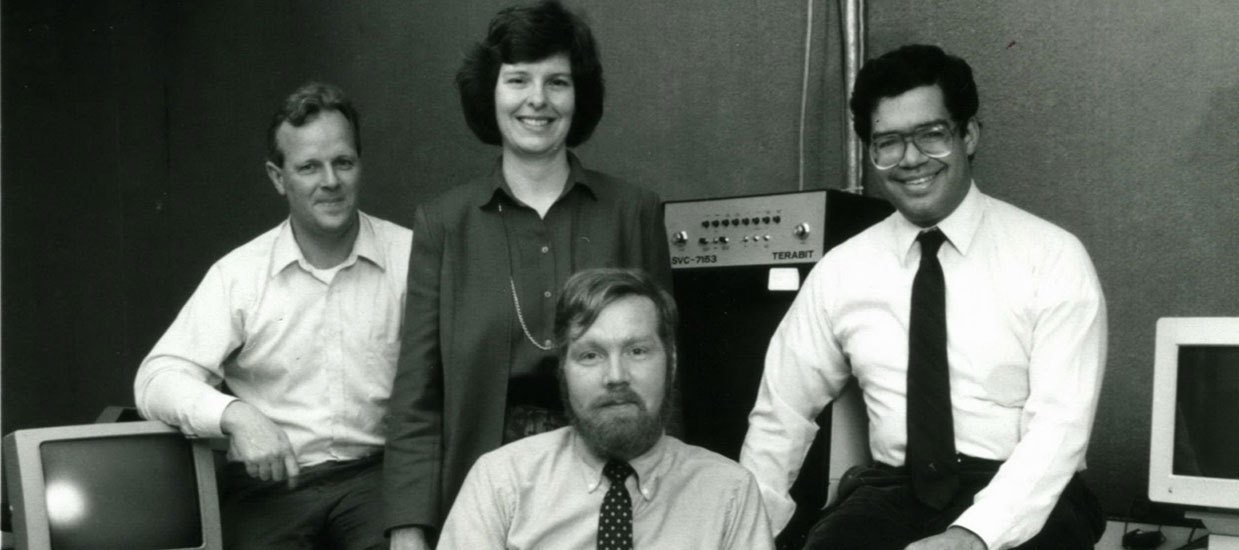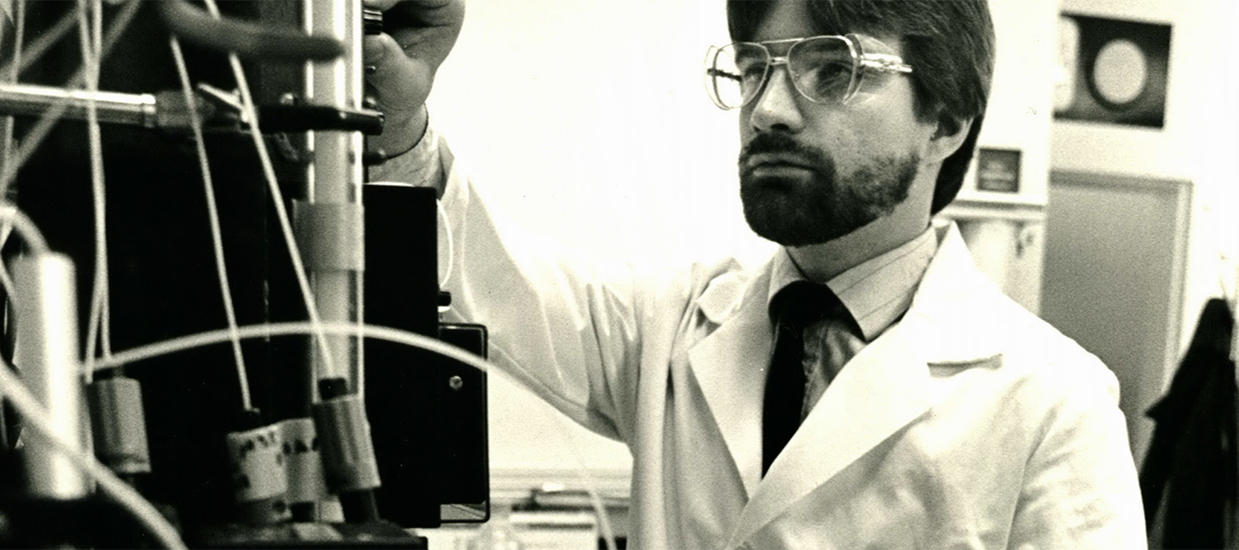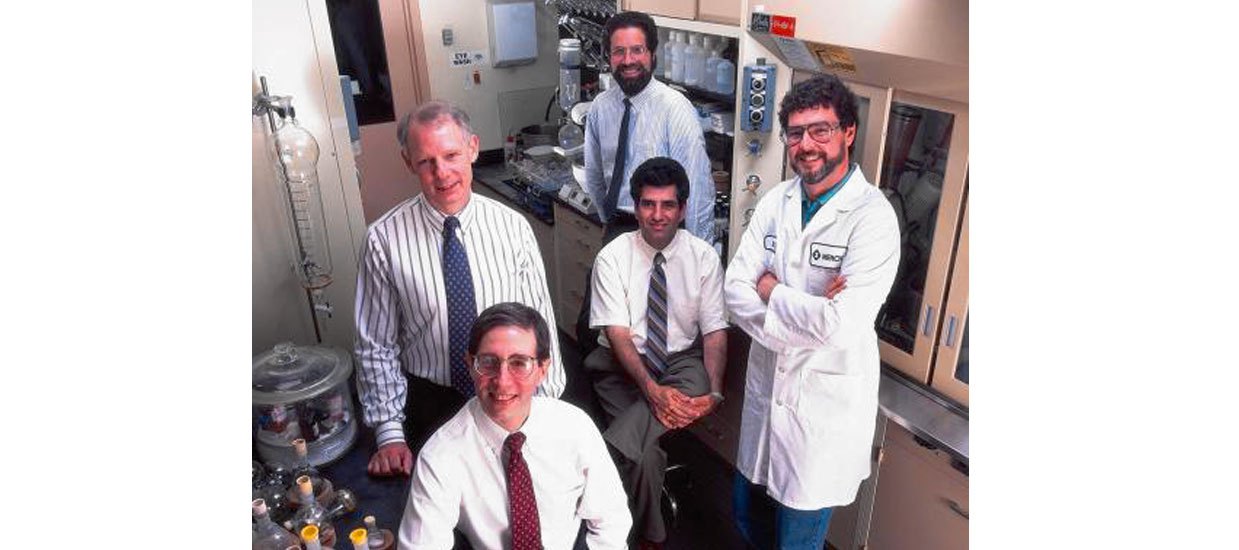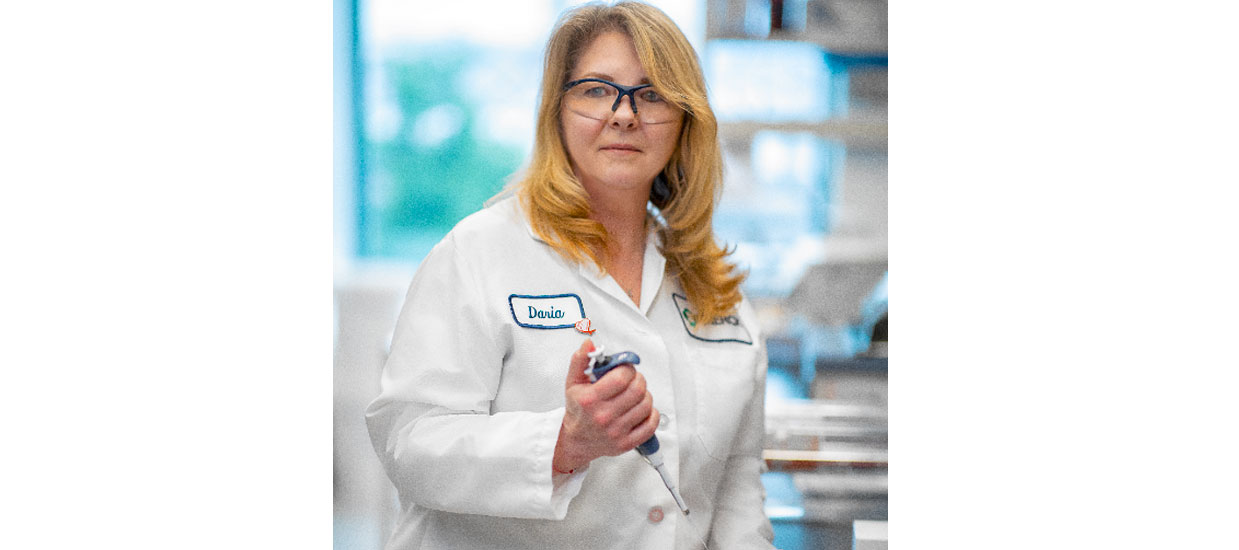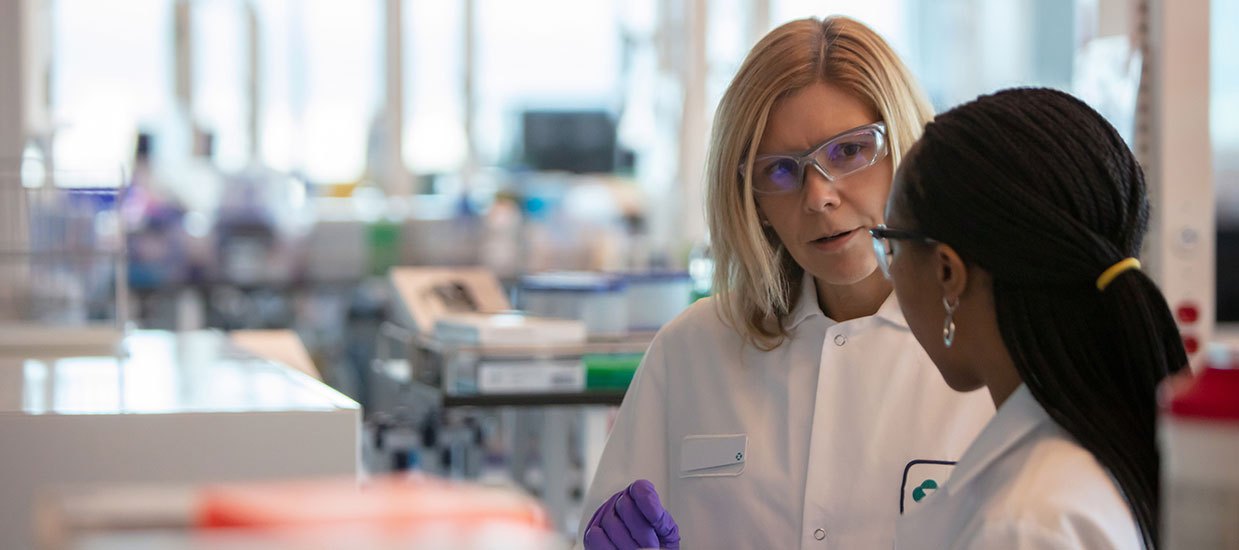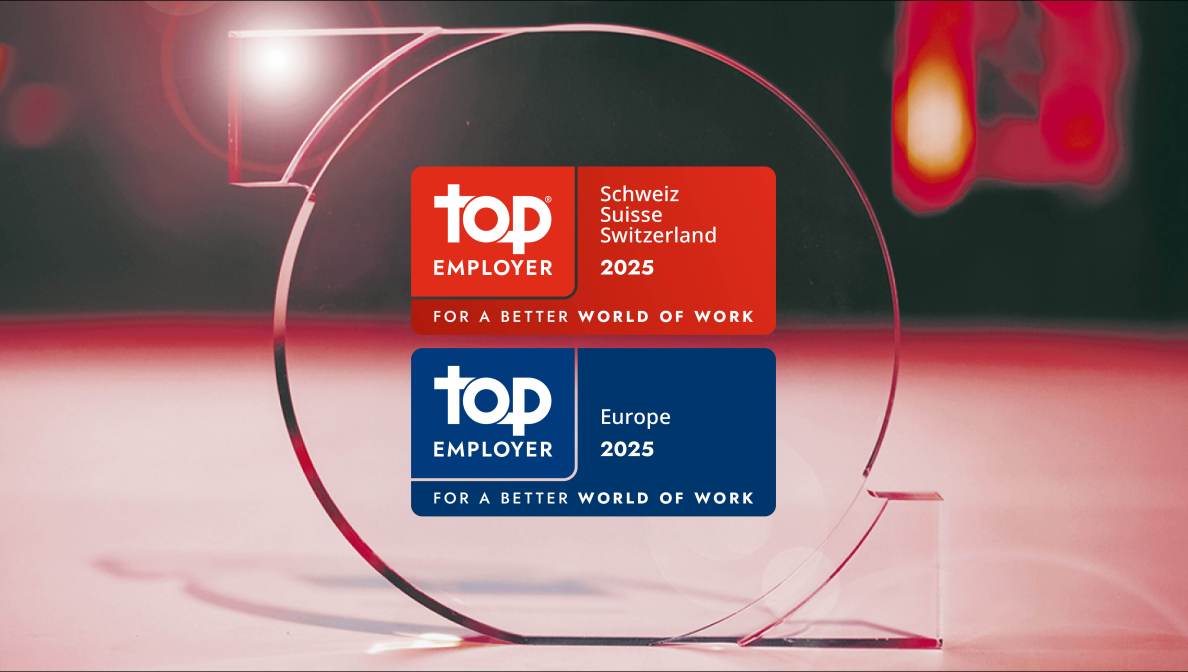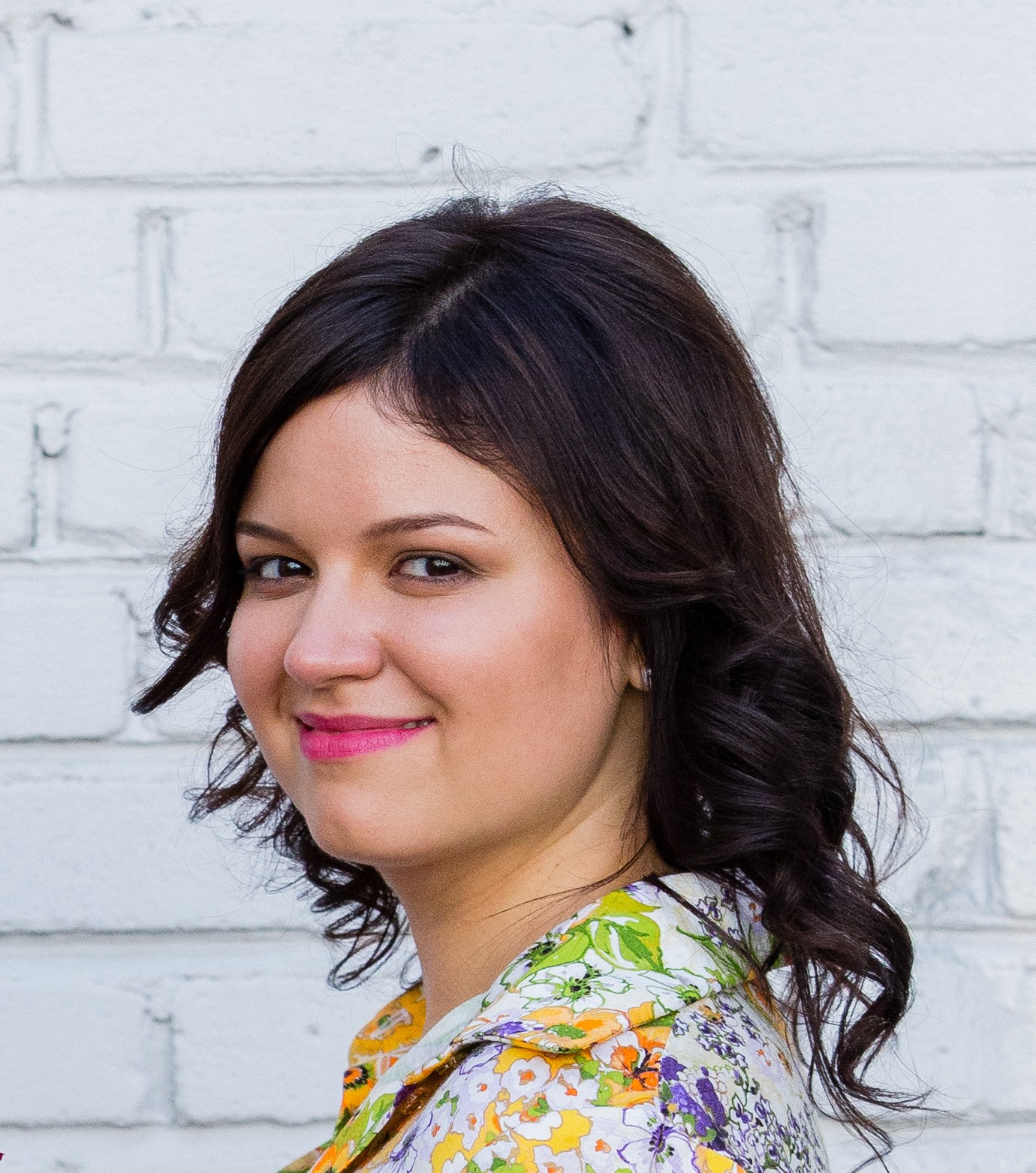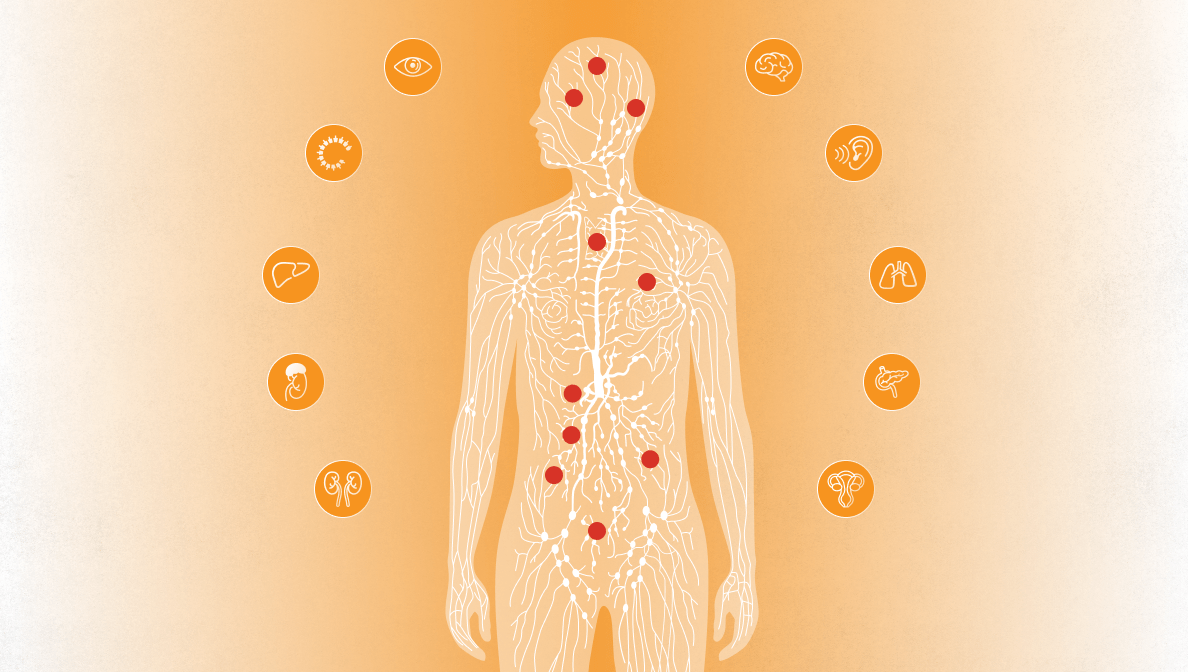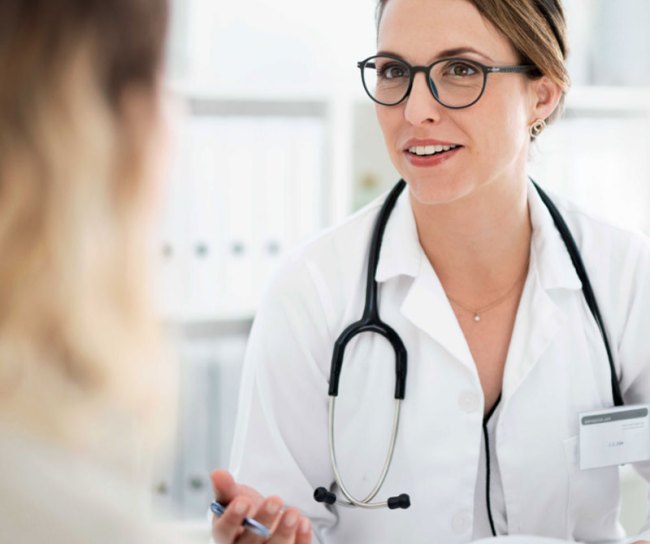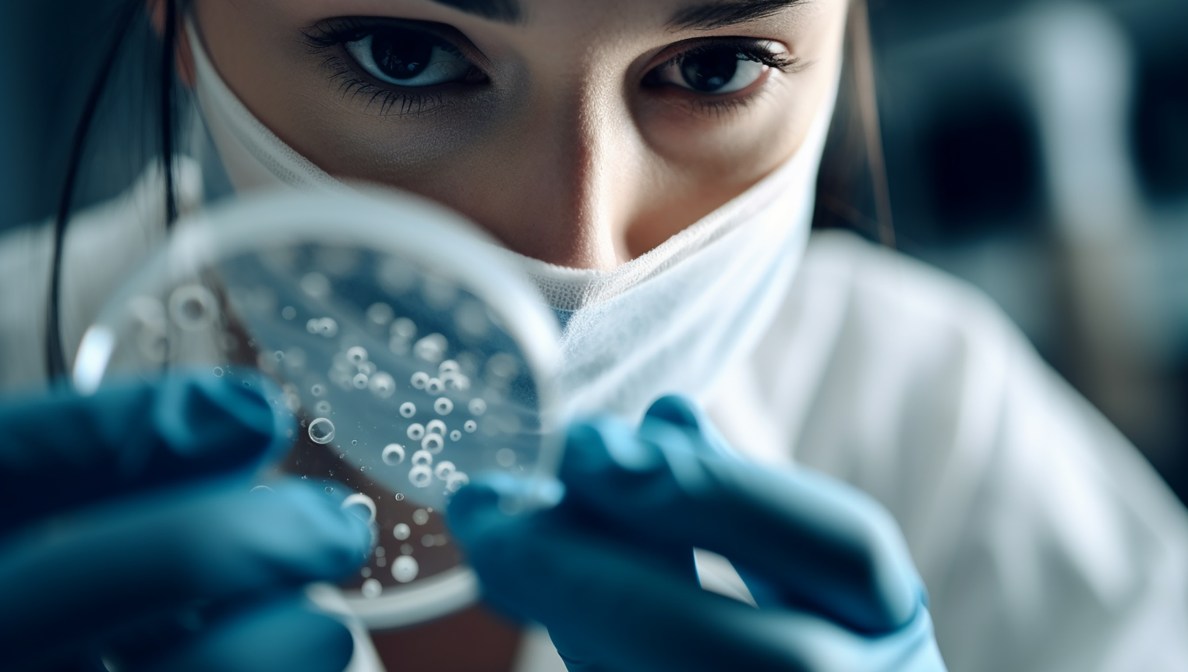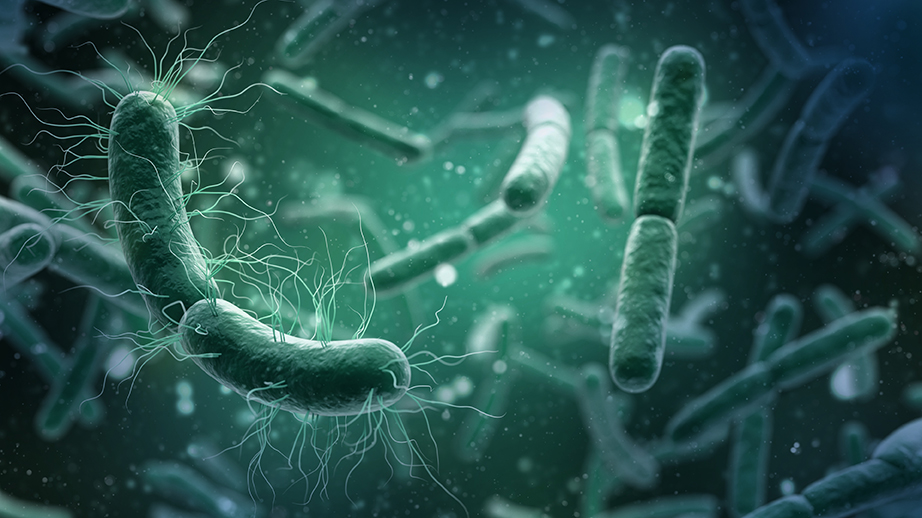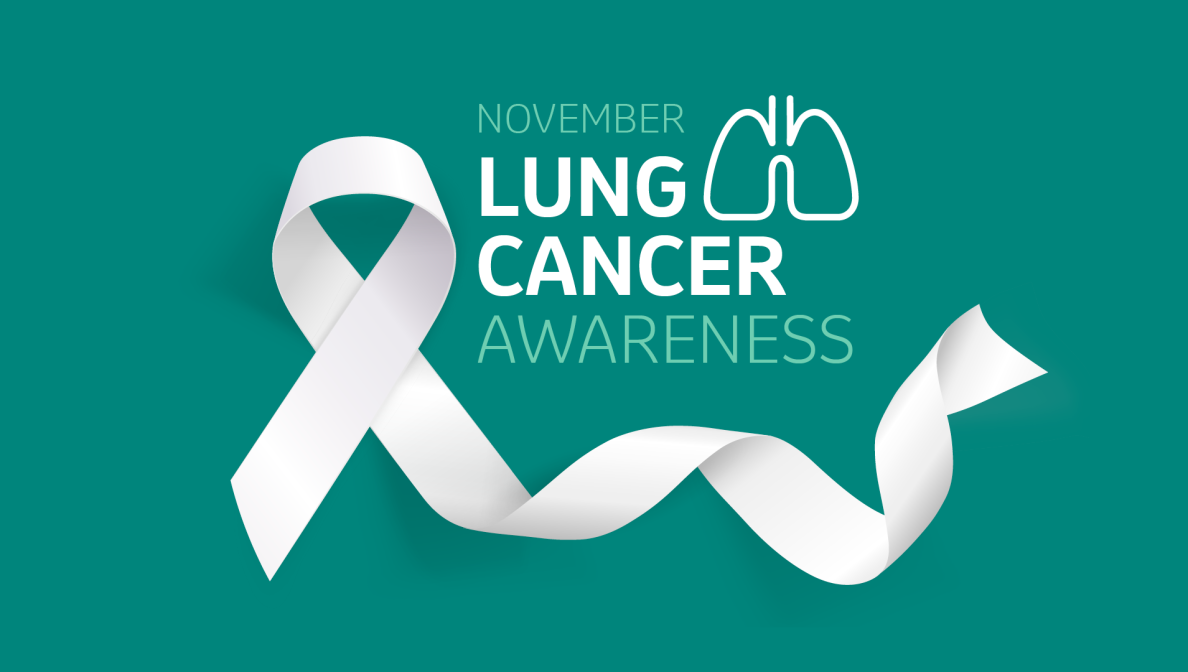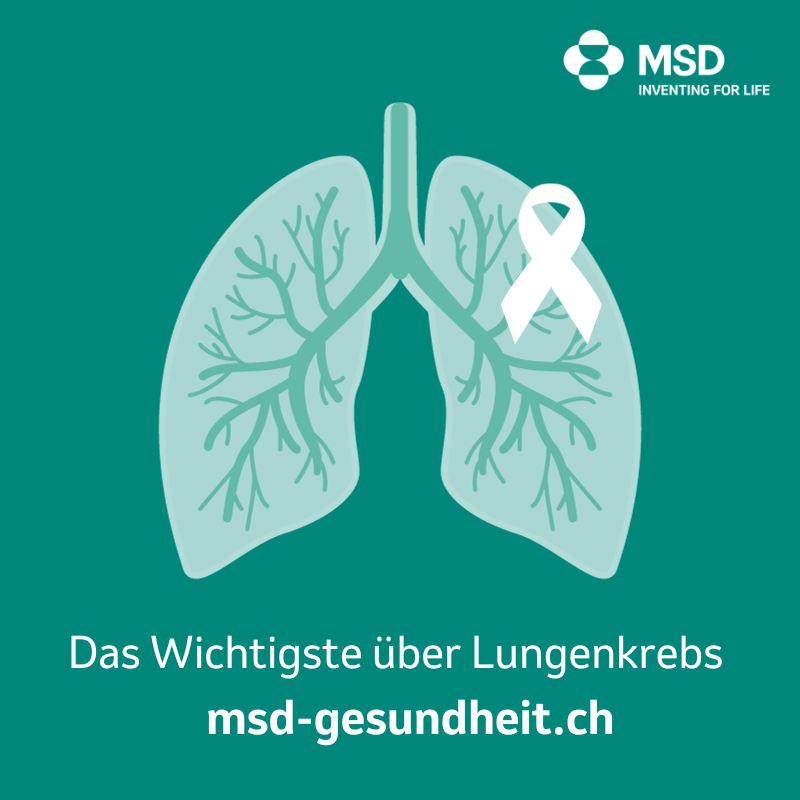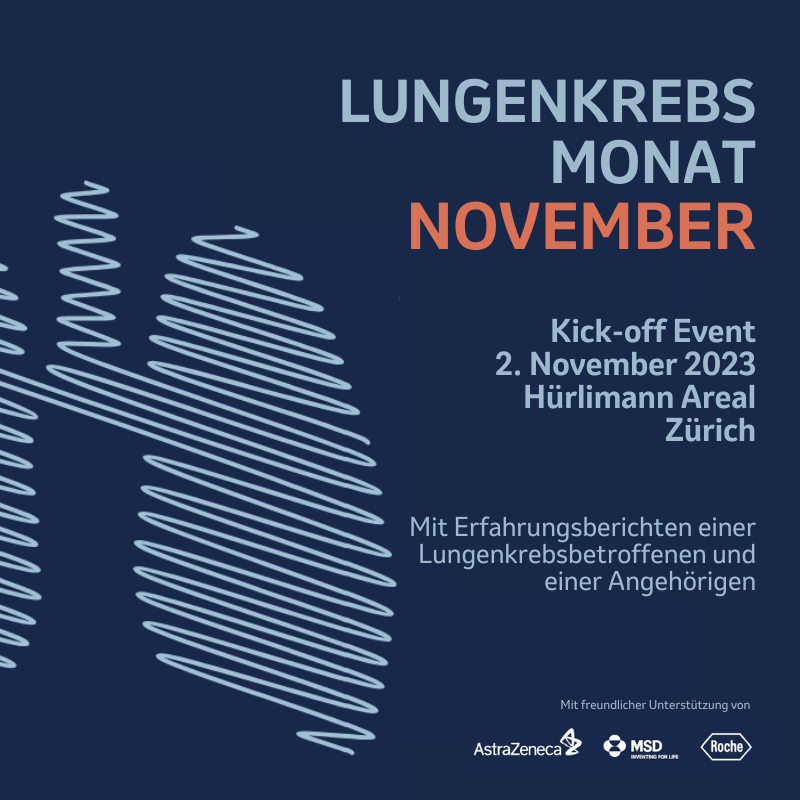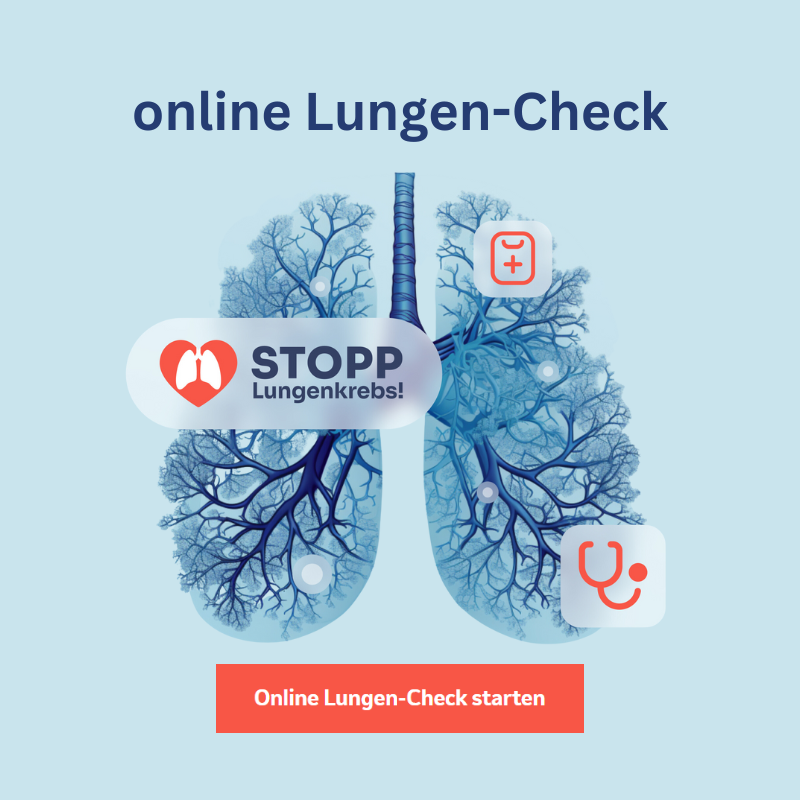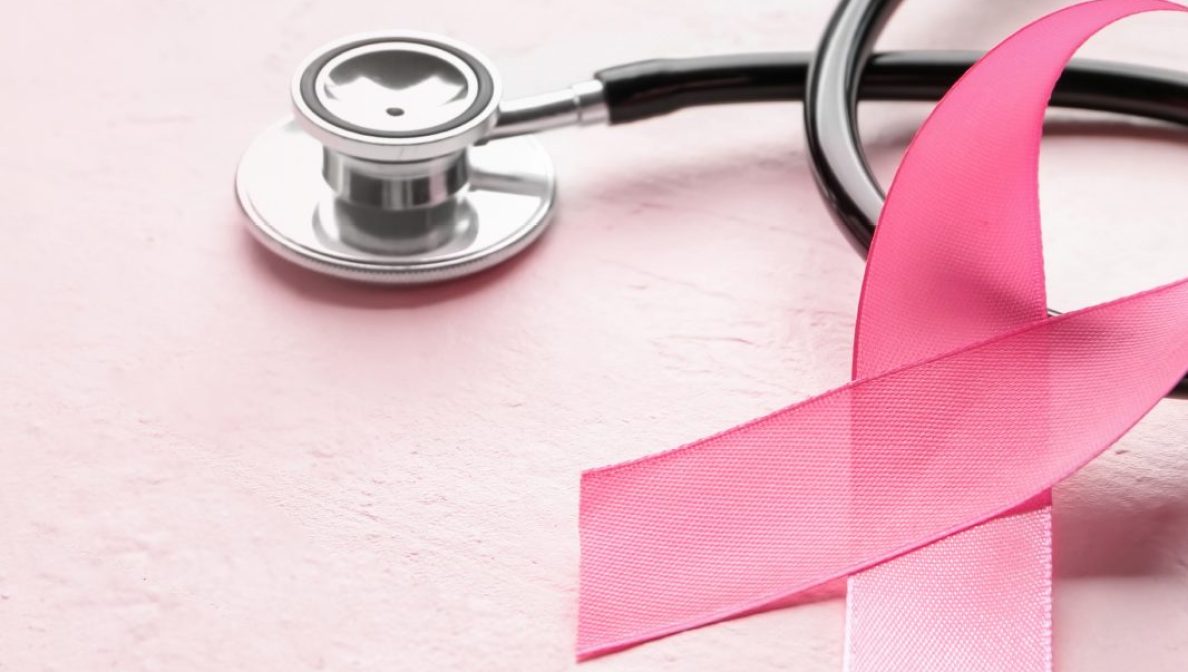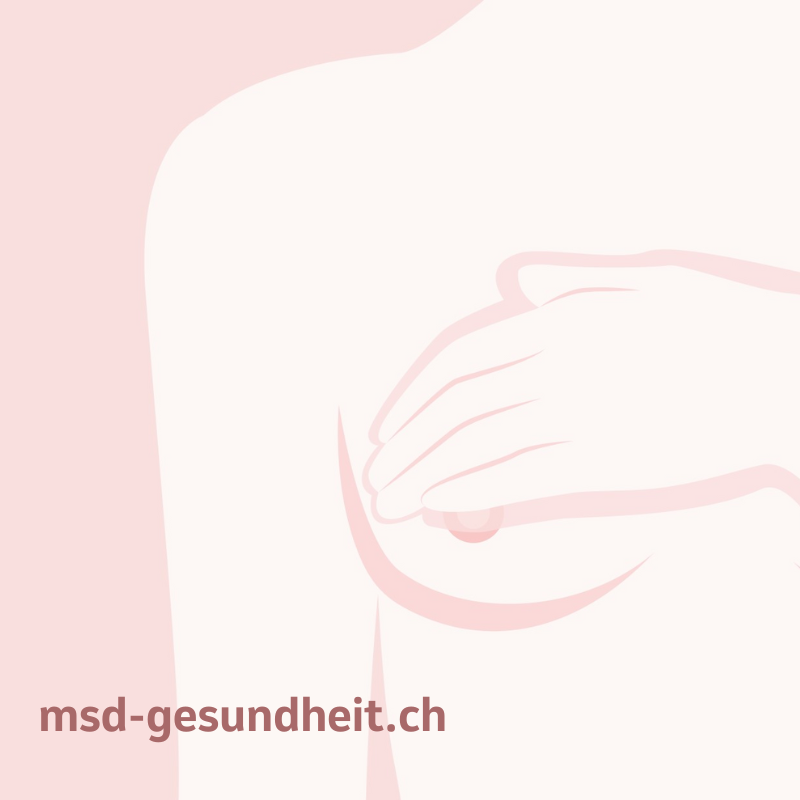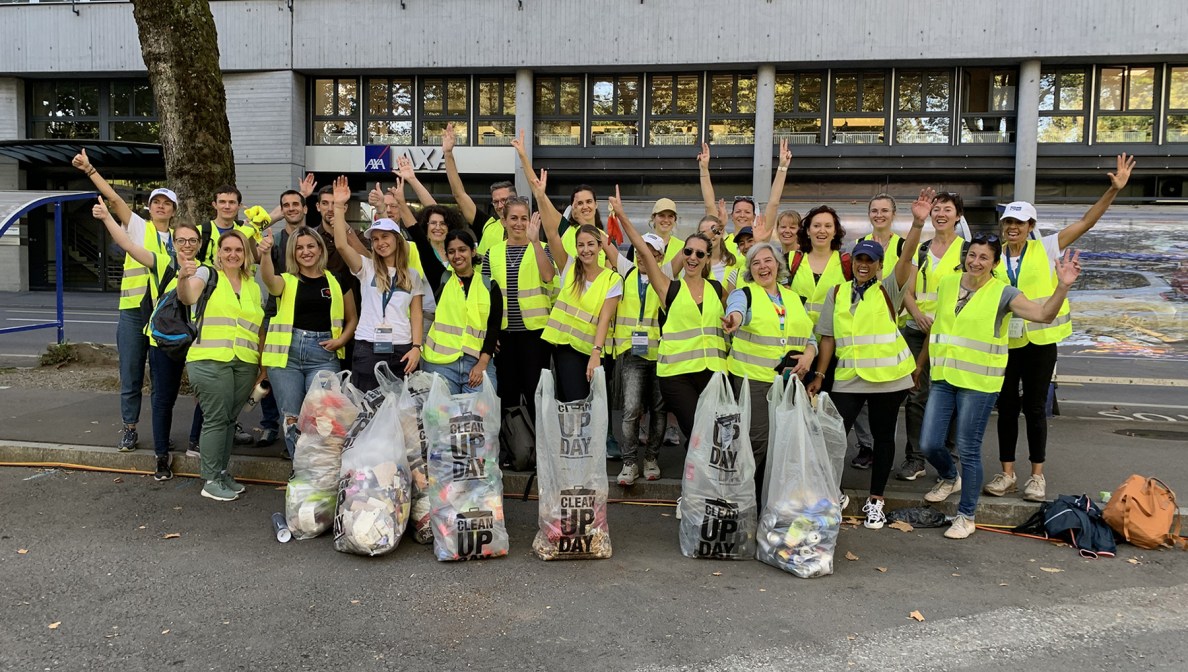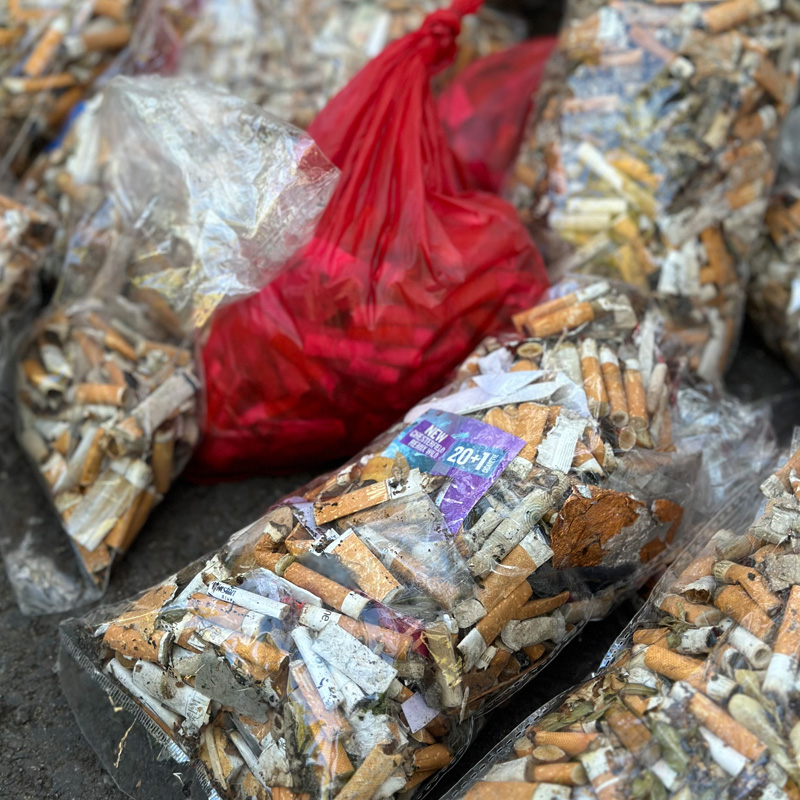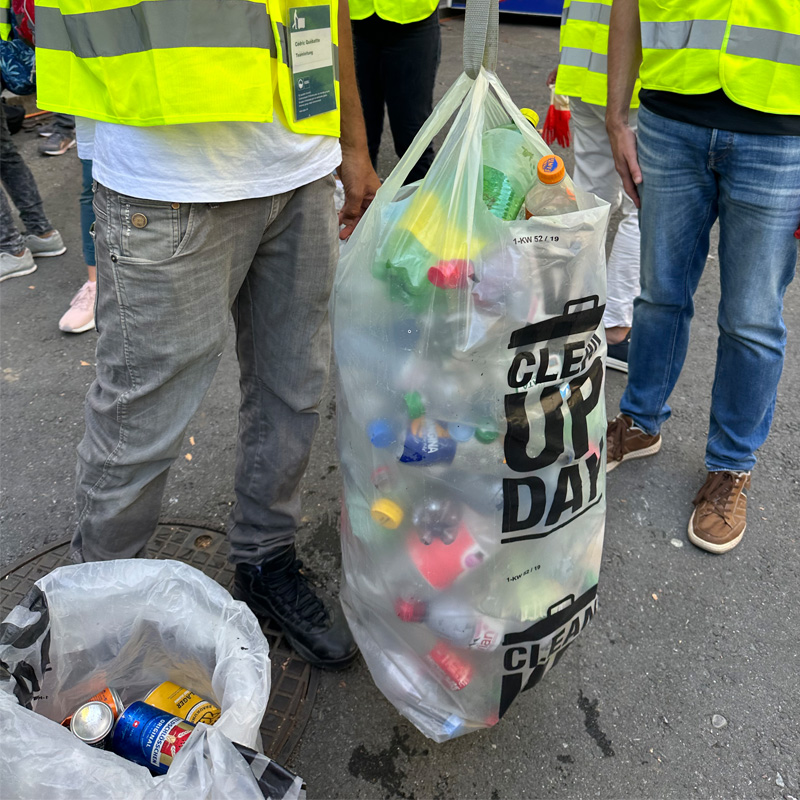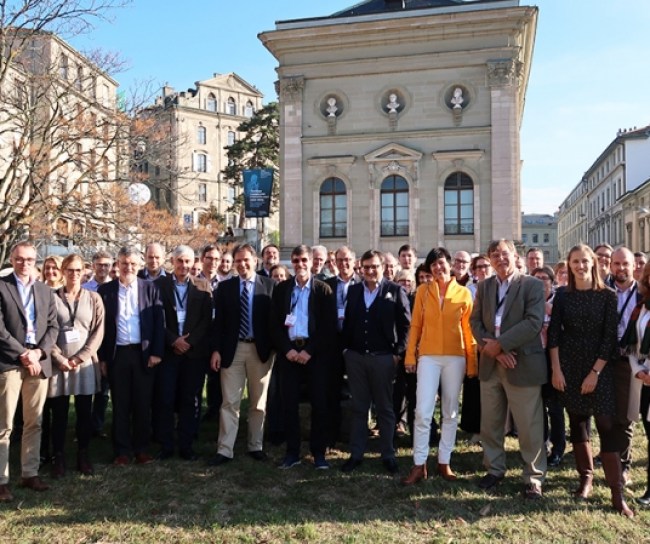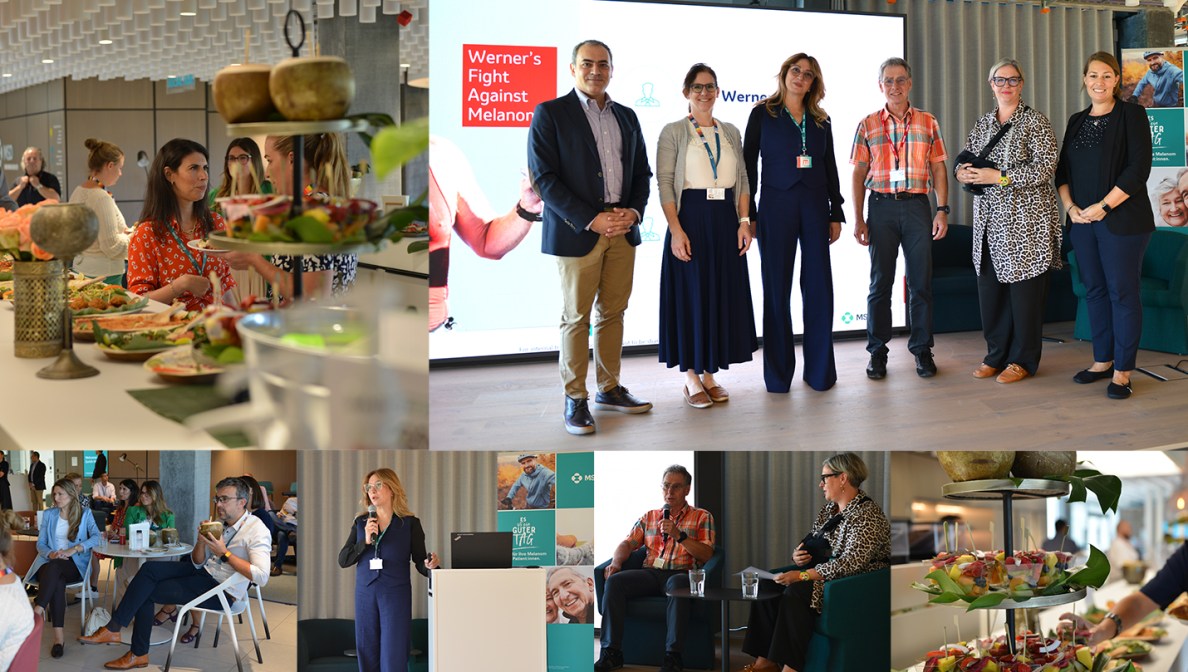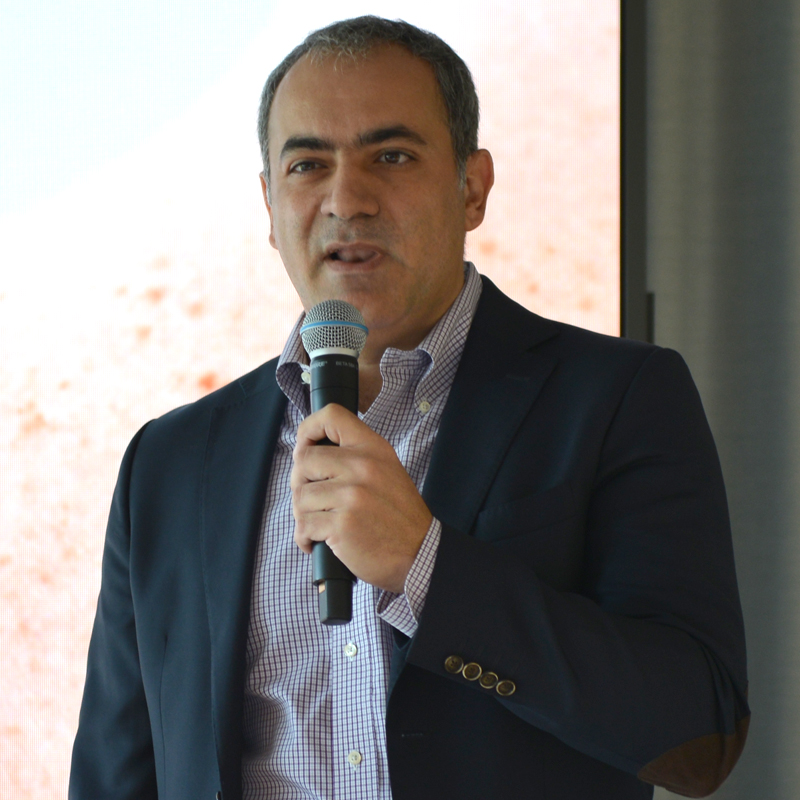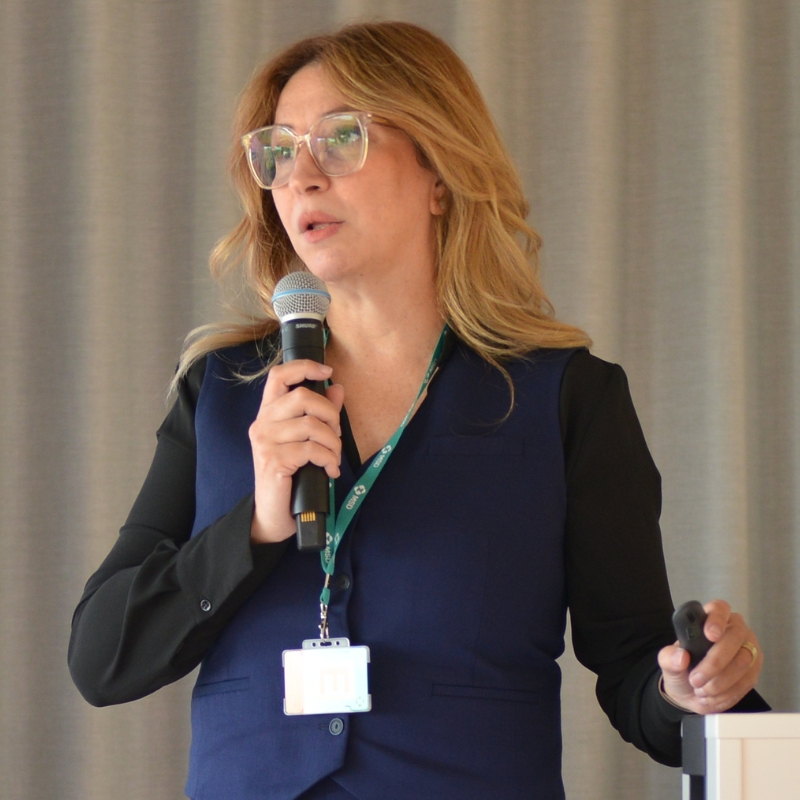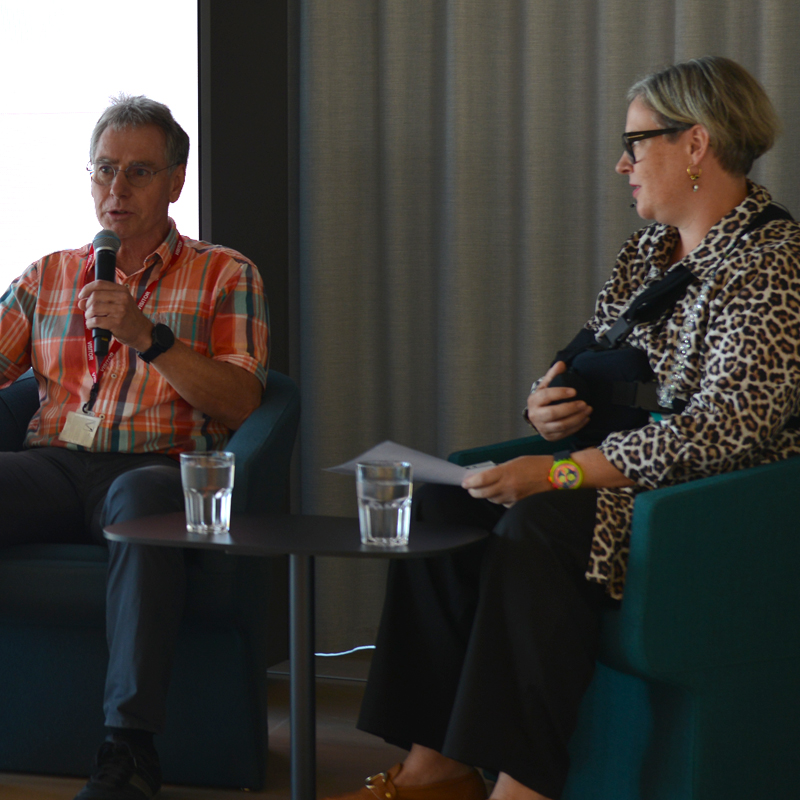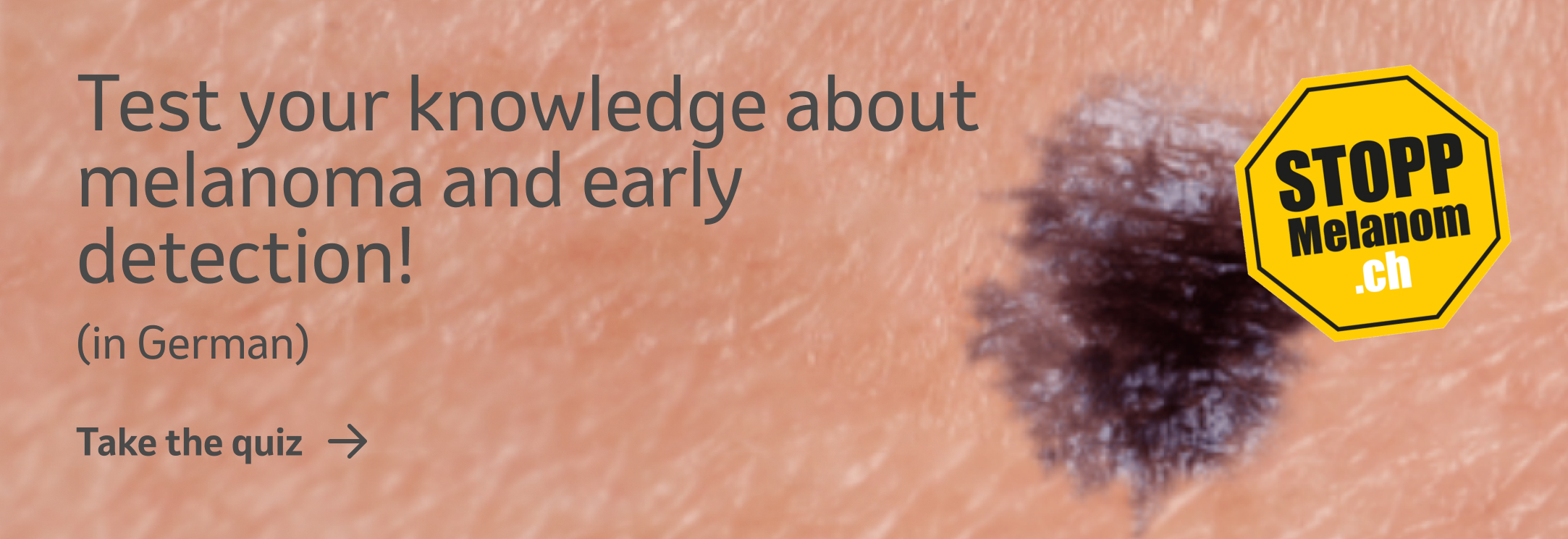Together Against Breast Cancer
Breast cancer is the most common type of cancer among women. The earlier breast cancer is detected and treated, the greater the chances of recovery. At MSD, we are committed to strengthening early detection. That’s why, in 2022, we initiated the PINK CUBE – an ever-growing breast cancer awareness initiative. We are proud that PINK CUBE has been recognized with two awards.
4. April 2025

PINK CUBE Test Your Breast was awarded the prestigious Audience Award and the Responsibility Award from SPONSORING SCHWEIZ at the 6th Night of Sponsoring at the Kunsthaus Zürich in the presence of around 280 guests. This award recognizes PINK CUBE Test Your Breast as a unique and innovative initiative built on strong partnerships and sponsors with a common goal: to fight breast cancer.
PINK CUBE Test Your Breast
PINK CUBE Test Your Breast is a unique initiative aimed at raising awareness about breast cancer and the important role of early detection. In the PINK CUBE, gynecologists offer free consultations and breast palpations. Visitors learn what a lump feels like and how to self-examine their breasts to detect changes.
In addition, PINK CUBE Test Your Breast actively engages with the media and policymakers to advocate for the implementation of organized mammography screening programs in all Swiss cantons.
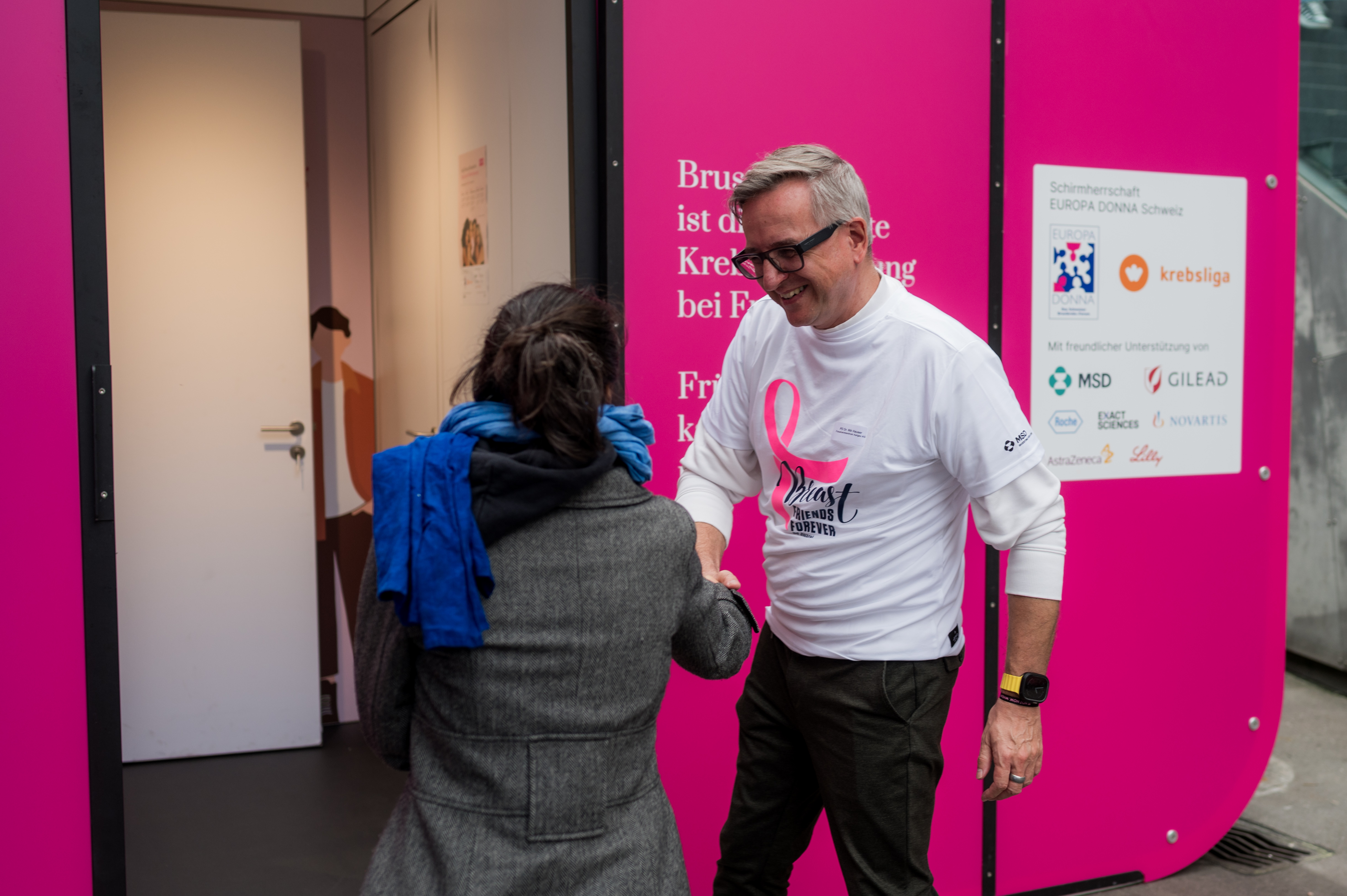
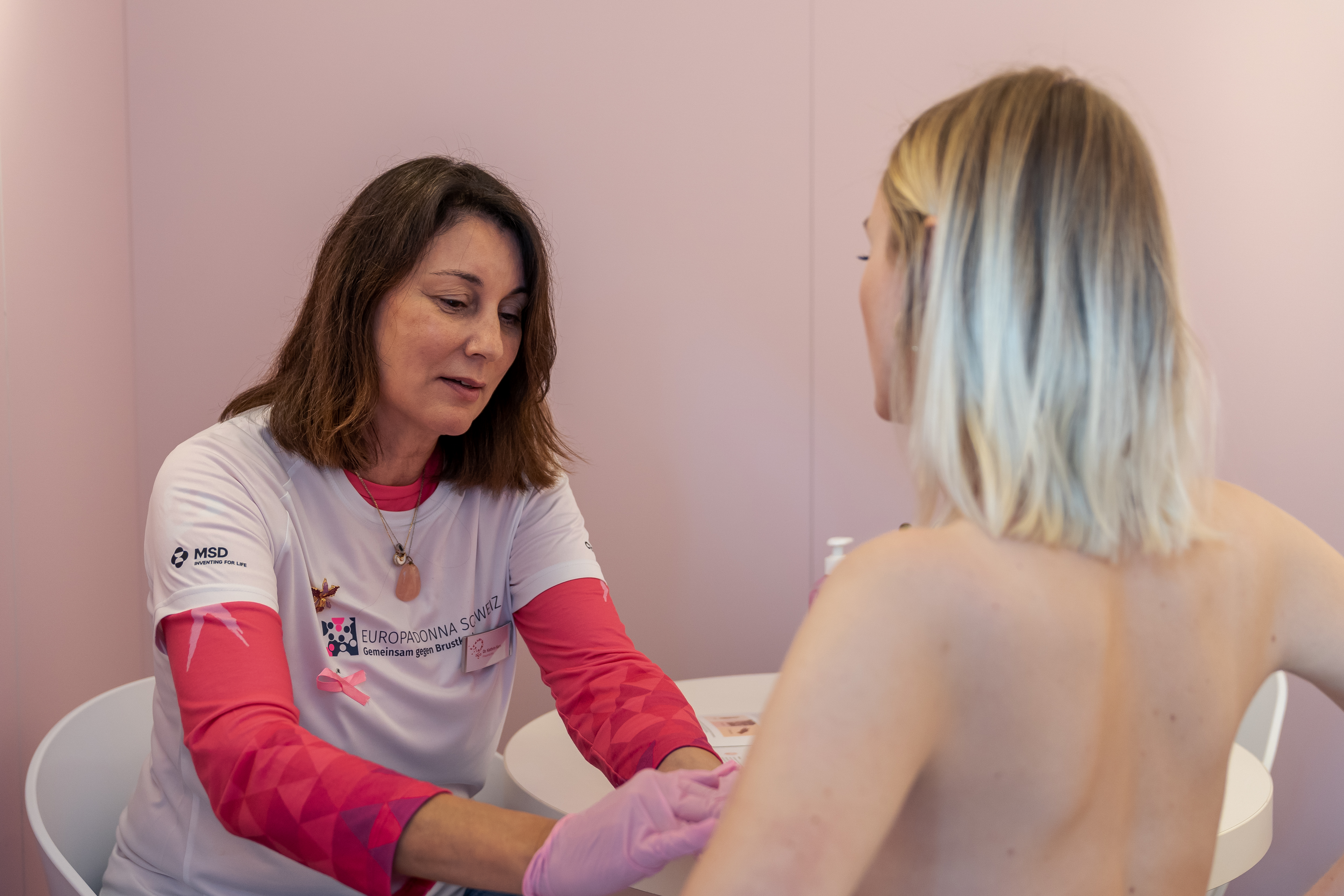
2024 Results
During the Breast Cancer Awareness Month in October 2024, the pink container visited five cantons and reached over 2.7 million people in the media with its important message about early detection.
Nearly 500 people were screened in the PINK CUBE, with possible signs of breast cancer detected in 32 women and 2 men. At the same time, the PINK CUBE contributed to progress in the political discussions around the introduction of mammography screening programs.
These achievements were only made possible through strong partnerships and the multi-sponsorship support of companies including MSD, Gilead, Roche, Exact Sciences, Novartis, AstraZeneca, and Eli Lilly.
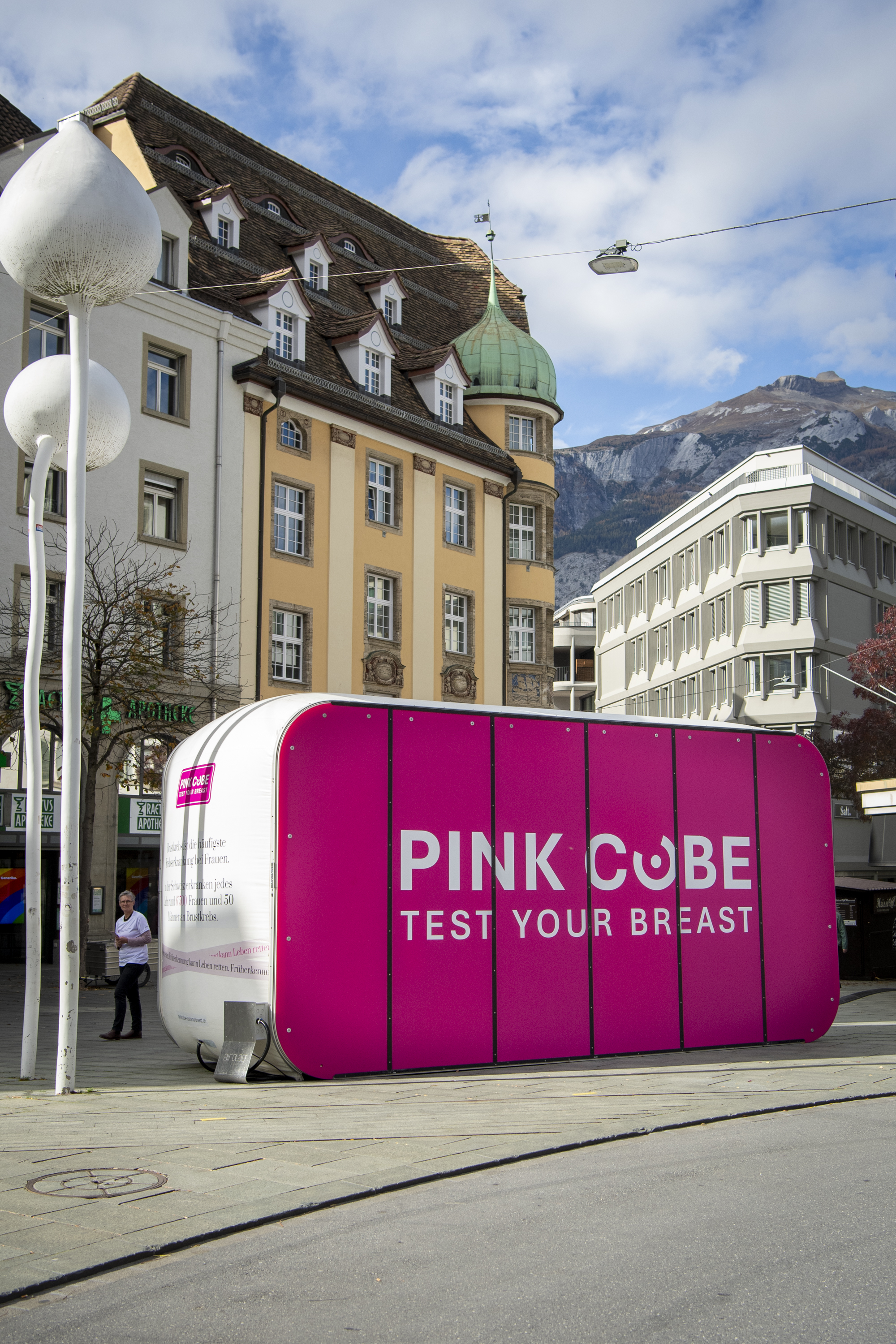
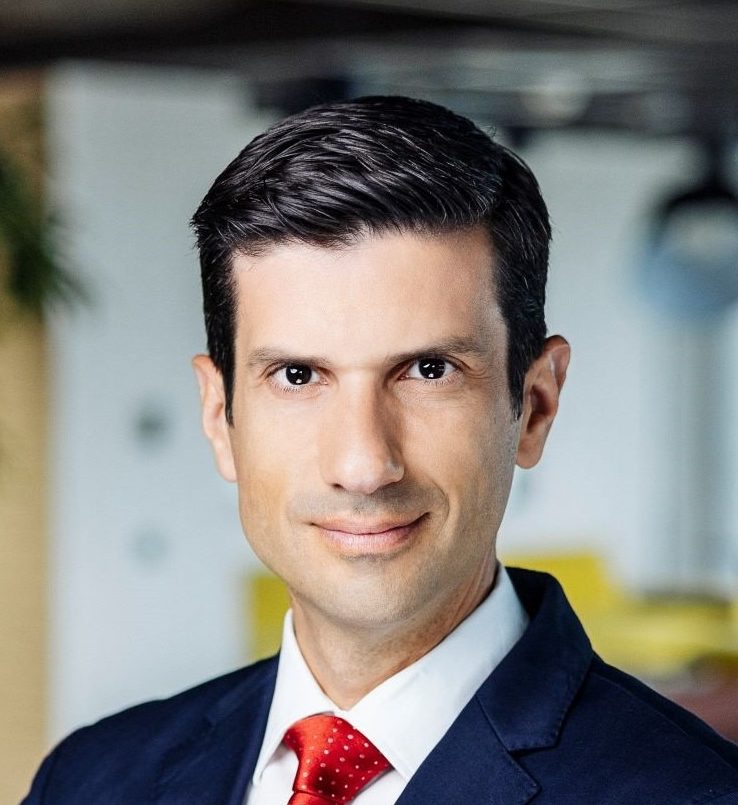
„We are proud to have launched this important breast cancer awareness initiative and to continue supporting it as a main sponsor,” says Dimitri Gitas, Managing Director of MSD Switzerland. ”The success of PINK CUBE clearly demonstrates the need for equal access to cancer prevention and early detection – a goal that can be achieved through a national cancer strategy.“
Coverage of mammography costs in the early detection program
If a test is carried out as part of an early detection program, the costs are covered by the basic insurance without being added to the deductible. Participating women only pay the excess of ten percent (about 20 francs). Women aged 50 and over receive informational materials and an invitation to an early detection mammogram by post every two years.

PINK CUBE Test Your Breast 2025 Roadshow
In September and October 2025, the PINK CUBE will visit the 11 cantons that have not yet implemented a mammography screening program.
For more information, visit: www.pinkcube-testyourbreast.ch
CH-NON-02963, 04/2025


